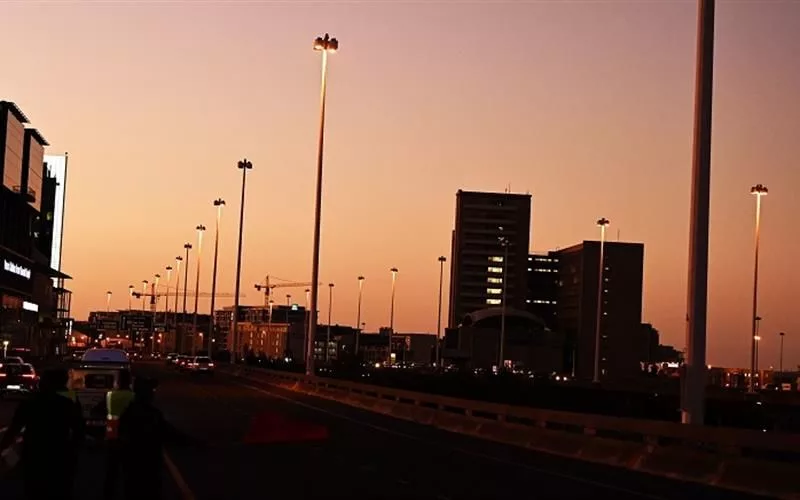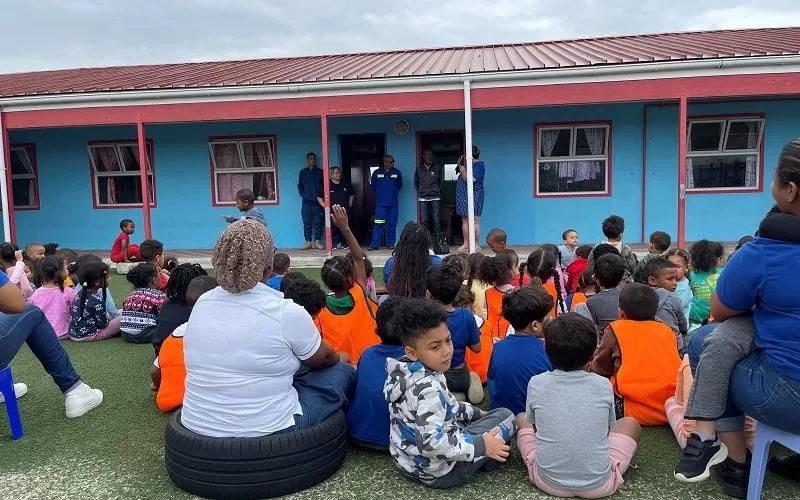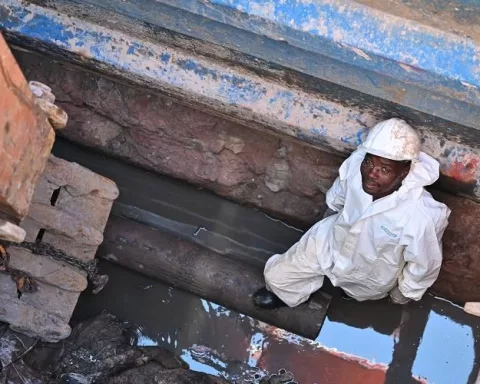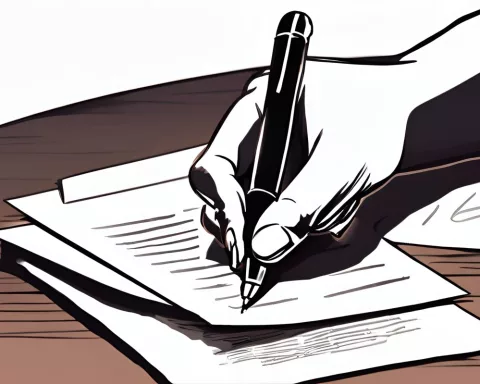Cape Town is fighting against infrastructure vandalism and theft to protect essential assets that ensure lighting, safety, and security for its residents and visitors. The City has a zero-tolerance stance against criminal conduct and has established several preventative initiatives to pinpoint and reinforce infrastructure hotspots. The City encourages public participation by providing rewards for information that leads to arrests or the seizure of stolen and illicit goods. Thanks to the combined efforts of committed teams, Cape Town is determined to defend its infrastructure from vandalism and theft, ensuring the welfare of its people.
How is Cape Town fighting against infrastructure vandalism and theft?
The City of Cape Town’s Electricity Generation and Distribution Department is committed to protecting essential assets from vandalism and theft that ensure lighting, safety, and security for residents and visitors alike. They have instituted a zero-tolerance stance against criminal conduct and established several preventative initiatives to pinpoint and reinforce infrastructure hotspots. Additionally, the City encourages public participation by providing rewards for information that leads to arrests or the seizure of stolen and illicit goods.
Combating the Darkness: Fixing Damaged Infrastructure
Cities around the globe grapple with the persistent challenge of vandalism and theft targeting public infrastructure. Cape Town is no exception, as damage to high masts and streetlights has become increasingly prevalent. Nevertheless, the City’s Electricity Generation and Distribution Department is unwavering in their commitment to protect the essential assets that ensure lighting, safety, and security for residents and visitors alike.
In December 2022, City teams efficiently mended high masts and replaced 2,800 meters of stolen cable on Nelson Mandela and FW de Klerk Boulevards after a significant vandalism incident. Regrettably, merely months later, the infrastructure sustained more damage from another wave of thievery and destruction. Unfazed, the City’s dedicated teams promptly addressed the damaged cable, restoring the high masts to their former condition.
With the continuation of this destructive trend, the City has instituted a zero-tolerance stance against such criminal conduct. Acknowledging the critical role of secure transport routes, several preventative initiatives are being established across the metropolitan region. By pinpointing and reinforcing infrastructure hotspots, the City aims to better safeguard its assets from vandals and thieves.
United Front: Collaborative Efforts to Prevent Crime
Cape Town is not alone in its fight against vandalism. Energy Safety teams and private security forces diligently provide an on-the-ground presence that discourages criminal activities. Nevertheless, as the primary law enforcement agency, the South African Police Service is urged to collaborate with these teams, establishing a cohesive and decisive response to the challenges.
Councillor Beverley van Reenen, the Mayoral Committee Member for Energy, recognizes the City’s obligation to maintain over 245,000 streetlights, as well as high mast lighting on major highways and informal settlements. In spite of the alarming surge in vandalism cases, the Electricity Generation and Distribution Department is dedicated to enhancing the streetlight burn rate throughout the metropolitan area.
Community Engagement: Encouraging Public Participation
To foster public involvement, the City offers several channels for residents to report damage to municipal electrical infrastructure. Reporting methods include sending an SMS to 31220, emailing power@capetown.gov.za, or submitting anonymous tip-offs for illegal activities. These tips can be reported by dialing 112 from a mobile phone or 107 from a landline, or 021 480 7700 for emergencies.
As another deterrent against vandalism and theft, the City now provides rewards for information that leads to arrests or the seizure of stolen and illicit goods. This incentive extends to individuals who share details about illegal connections or the damage and theft of electricity infrastructure.
A Brighter Future: Protecting Cape Town’s Infrastructure
Thanks to the combined efforts of committed teams, Cape Town is determined to defend its infrastructure from vandalism and theft, thereby ensuring the welfare of its residents and visitors. By cultivating a sense of collaboration and vigilance, the City strives to triumph in its ongoing battle against those who threaten the security and quality of life in Cape Town.
1. What is Cape Town doing to fight against infrastructure vandalism and theft?
The City of Cape Town’s Electricity Generation and Distribution Department has established a zero-tolerance stance against criminal conduct and established several preventative initiatives to pinpoint and reinforce infrastructure hotspots. Additionally, the City encourages public participation by providing rewards for information that leads to arrests or the seizure of stolen and illicit goods.
2. What essential assets is Cape Town protecting?
Cape Town is protecting essential assets that ensure lighting, safety, and security for its residents and visitors.
3. How has Cape Town fixed damaged infrastructure?
City teams efficiently mended high masts and replaced 2,800 meters of stolen cable on Nelson Mandela and FW de Klerk Boulevards after a significant vandalism incident. The City’s dedicated teams promptly addressed the damaged cable, restoring the high masts to their former condition.
4. What is Cape Town’s zero-tolerance stance against?
Cape Town has instituted a zero-tolerance stance against criminal conduct, including vandalism and theft.
5. What are some preventative initiatives that Cape Town has established?
Cape Town has established several preventative initiatives to pinpoint and reinforce infrastructure hotspots.
6. Who collaborates with Cape Town to prevent crime?
Energy Safety teams and private security forces collaborate with the primary law enforcement agency, the South African Police Service, to establish a cohesive and decisive response to the challenges.
7. How can the public participate in protecting Cape Town’s infrastructure?
The City offers several channels for residents to report damage to municipal electrical infrastructure. Reporting methods include sending an SMS to 31220, emailing power@capetown.gov.za, or submitting anonymous tip-offs for illegal activities. Tips can also be reported by dialing 112 from a mobile phone or 107 from a landline, or 021 480 7700 for emergencies.
8. What incentive does the City provide for reporting information about illegal activities?
The City provides rewards for information that leads to arrests or the seizure of stolen and illicit goods, including illegal connections or the damage and theft of electricity infrastructure.








